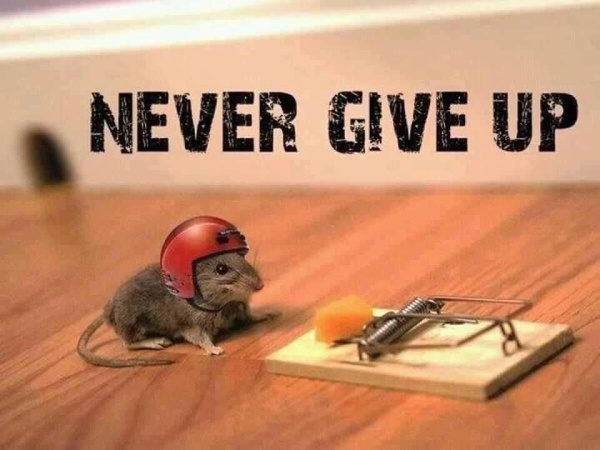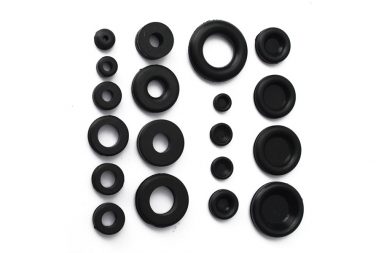Discover Inspiration Even in Failure
Doing it yourself can be messy, time consuming, and lead to sunk costs if you lack experience. Approaching a project alone can be daunting, so why take the plunge into DIY at all? There are a handful of clear and straightforward reasons to get into DIY projects. Most experienced DIYers can tell you that with practice and preparation they are saving a bundle by getting it done without hiring a professional. Additionally, when you’ve “taken it apart and put it back together again” there is an inherent increased understanding of whatever you worked on. Knowing how it works can often lead to increased use and getting more out of what you worked on.
Those are easily understood and tangible benefits. You can point to them and describe them easily to an onlooker: “See what I’ve done here? This saved me X and now I can do Y, Z better with it!”
But what about the intangible benefits? What about the rewards to becoming more familiar with how things work, even through failure? There are significantly more advantages than meet the eye about getting into DIY projects, largely revolving around you.
Anatomy of a DIY Maker
At the heart of things, your interest in DIY projects means that you’re a Maker. That’s spelled with a capital ‘M’ for a reason. Most people find their self-motivation in less direct and noticeable passions, but you are drawn towards involvement with the world around you.
No two DIY’ers are exactly like. The drive to repair and create occurs in every conceivable walk of life with no care for politics, religion, sex, occupation, or age. You can be as varied as the projects you take on or things you create: restoring rings, re-staining cabinets, building a natural swim pond, carving a wooden jack-o-lantern, re-flooring your home, converting your game room, installing RTA cabinets, converting carpeted stairs to hardwood, tile backsplash, or even something as simple as taking care of your bathroom cabinets — the sky’s the limit when it comes to DIY’er ingenuity and creativity.
The shared attributes of Do-It-Yourselfers are far more interesting. Generally you will find that others involved in home projects are more upbeat go-getters. There is a noticeable level of satisfaction in the moment among people who get their hands dirty on their own time. You may wonder how that can be, when it is likely that a lot of individuals getting started on their first or third project are faltering or making mistakes. The funny secret lies in how important those mistakes really are.
Embracing Obstacles in Your Projects
Learning to love your mistakes isn’t remotely easy. To err may be human, but it is rarely fun. For a great many people, a quick win with minimal fuss is the height of attainable satisfaction as far as they know. But when you start to dig in to a personal project, you start to learn something new about yourself and in fact how we fundamentally function: overcoming obstacles towards an intended goal lies at the center of happiness. This is supported by current research in neuroscience indicating that we are intrinsically motivated to seek out challenges and improve our skills.
Knowing or reading that fact certainly doesn’t eliminate any fears or concerns about getting it wrong the first time. But it should let you know that there are significant rewards waiting at the end of those mistakes. The greatest takeaway here is that you should focus on maximizing what you learned every time you fell.
The Rewards of Persistence
When you brush yourself off after a miscalculation in your work, you may immediately begin to reap the rewards. Redoubling your efforts to get your project completed the way you want it can instill you with a keener eye and better judgement in the area you failed. There are even greater advantages at the completion of the project and beyond.
Appreciation for the Systems Around You
It is remarkable how little we can know about all of the systems, tools, and methodologies that make our lives possible. From our morning coffee to the sturdiness of a chair to the car that gets us to work, our civilization is a buzzing hive of intricate systems of knowledge. The mechanisms of survival are everywhere, and we make use of them largely to the extent that we have been taught.
When you take it upon yourself to make, repair, or improve something you are also embarking on a journey of education. It is virtually impossible not to start becoming an expert in a field or thing when you begin to study how to sustain or improve how that field or thing works. As you progress in knowledge and activity, the area of your project becomes another part of you as you become a part of it. Suddenly all of your time spent in the realm of that DIY project will explode in value when you discover new appreciation for how something benefits our lives.
Sense of Community
Shared interests are the cornerstone of interpersonal relationships, and the DIY community is far from an exception. People who love to jump in to tough but engaging projects love to share their stories and lessons learned. You will find not only a wealth of information at your fingertips about DIY ideas but people who want to learn from you. If you complete a do-it-yourself project for a friend or loved one, your bond with them will grow due to the time and skill you invested in their gift.
Freedom from Reliance
Being open to ideas and more experienced knowledge is fundamental to wisdom. But we have all had moments where we wondered if we were being fleeced or patronized by a professional. Our lack of know-how in an area can leave us and our budgets at the whims of people who do not always keep our best interests to the forefront. When you roll up your sleeves and work on passion or home projects yourself, you reduce the degree to which you rely on others. You will understand better the budget demands, time constraints, and material necessities involved in the area of your labors. Even if you want to work with a contractor in the future, you will be better positioned to negotiate and speak plainly with them (a callback to the sense of community).

Enrichment of Self-Worth
There is no better feeling than standing back and appreciating the fruit of your labors. All of your investment in your creation can only be fully admired by you, and this directly feeds your sense of self-worth. This can readily inspire thoughts such as ‘I’m going to do it again, but twice as good’ or ‘What can I fix next?’, creating a sustained energy for creation and improvement. Many DIY’ers find that their activities lie at the center of their joy.
So let’s ask that question again: Why do it yourself at all? That’s why.




